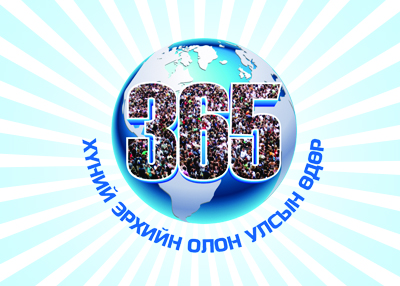On 7 December 2000, the law of the National Human Rights Commission of Mongolia was adopted. Following the adoption of this law, a national human rights institution was established in Mongolia. The law comprises of 6 chapters and 26 articles and provides the operational principles, structure, organization, and mandate of the Commission.
According to article 3.1 of the law, the Commission is an institution mandated with the promotion and protection of human rights and freedoms, provided for in the Constitution of Mongolia, Mongolian laws and international treaties to which Mongolia is a party.
The NHRCM is granted "A” status by the International Coordinating Committee of National Institutions for the Promotion and Protection of Human Rights (ICC) (indicating full compliance with the Paris Principles) and was admitted as a full member institution at the Asia Pacific Forum of National Human Rights Institutions (APF) in 2001.
The NHRCM has three full-time Commissioners. The law requires the candidates for Commissioners to be Mongolian citizens of high legal and political qualification, with appropriate knowledge and experience in human rights, with a clean criminal record and as having reached the age 35. In accordance with this law, the Speaker of the State Great Khural (Parliament) nominates candidates for Commissioner to the State Great Khural on the basis of proposals by the President, the Parliamentary Standing Committee on Legal Affairs and the Supreme Court. The State Great Khural appoints the Commissioners for terms of six years with a single possible re-appointment. The Chief Commissioner is appointed from the Commissioners for a term of three years.
Principles of the Commission
Rule of law, independence, protection of human rights, freedoms and legitimate interests, justice and transparency are the guiding principles of the Commission.
Mission
We will take the lead in the acts of respecting, protecting, and promoting human rights and freedoms.
We will achieve our mission by:
-
Adhering to the principle ofindependenceand carrying out our functions
of monitoring, protecting and promoting human rightsand freedoms in a
knowledgeable and professional manner;
- Encouraging dialogue, cooperationand continuouslylearning from others;
- Appreciating pluralism, responsibility, professionalism and teamwork among the staff and creating favorable work environment.

